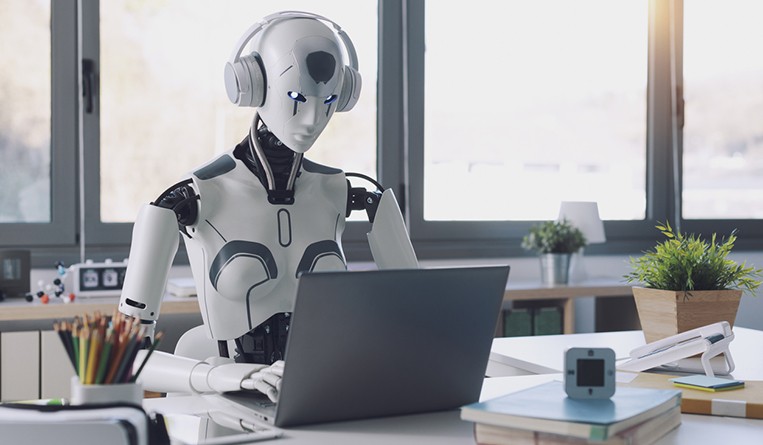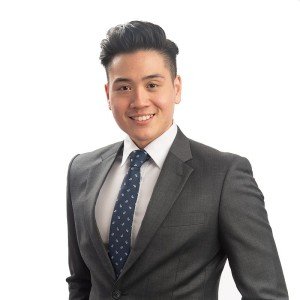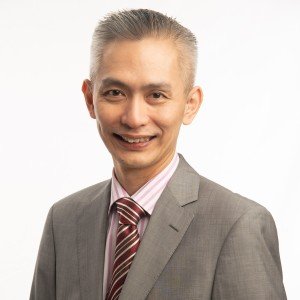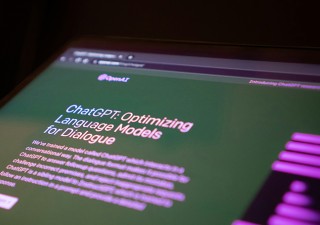Rise of the machines: Ownership of intellectual property created by artificial intelligence
31 August 2023

As the capabilities of generative AI continue to improve, courts and legal systems around the world are grappling with the concepts of authorship and ownership. Bahari Yeow, Zhi Jian Lim and Alex Choo examine the situation in Malaysia in light of recent court cases in the United Kingdom and the United States.
Earlier this year, the legal industry was shaken with the news that two U.S. lawyers were fined for citing fictitious legal authorities produced by the generative AI ChatGPT in their submission.
Whilst this incident may portray AI in a negative light, the message is clear – the capabilities of AI are limitless (apparently including conducting legal research and drafting submissions).
From our cellular phones where Siri or Alexa answers our every question to Tesla’s autopilot, it cannot be disputed that AI has increasingly interwoven itself into our daily lives.
A question still being debated is – can works made by AI be owned and protected?
As we approach new frontiers spurred by the rapid development of technology, it is timely to explore the concept of authorship and inventorship of AI-generated works and patents from a global perspective against the backdrop of Malaysia’s legal framework.
Dr. Thaler versus The World
A key figure in the discourse on authorship or inventorship of AI-generated works is Dr. Stephen Thaler. This name has become synonymous with pushing the boundaries of intellectual property laws, particularly on ownership of copyrights and patents generated by AI.
Thaler has commenced proceedings in numerous jurisdictions including Australia, the European Union, the United Kingdom, the United States of America, New Zealand and South Africa in an attempt to obtain IP protection of his creativity machine called “DABUS” (an acronym of Device for Autonomous Bootstrapping of Unified Sentience). Unfortunately, his track record has not been too promising with only success in South Africa.
The authors will zoom in on two of Thaler’s cases, namely the recent decision delivered in the United States (pertaining to AI authorship in copyright) and the UK Court of Appeal’s decision (pertaining to AI inventorship in patents).
U.S. District Court rejects copyright claim generated by AI
In a decision delivered in August of this year, the United States District Court for the District of Columbia held that an artistic work created by AI without any human input or intervention is not eligible for copyright protection. (Stephen Thaler v. Shira Perlmutter, Register of Copyrights and Director of the United States Copyright Office, et al, Civil Action No. 22-1564 (BAH))
In this case, Thaler is the owner of a computer system named “Creativity Machine”. He claims that the computer system generated a piece of visual art of its own accord entitled “A Recent Entrance to Paradise”. Thaler then sought to register the work for a copyright, naming the computer system as the author and him the owner. The Copyright Office denied the application on the grounds that the work lacked human authorship, a prerequisite for valid copyright to subsist. Thaler challenged this decision and commenced an action against the United States Copyright Office, the Register of Copyrights and the director of the United States Copyright Office as defendants.
The court, upon appreciating arguments by both parties and traversing previous case laws, held that the defendants had acted properly in denying copyright registration for a work created absent any human involvement.
UK Court of Appeal reaffirms an ‘inventor’ must be a natural person
Thaler’s case in the UK arises from two patent applications which were said to have been autonomously devised by DABUS. On those patent applications, Thaler named DABUS as the inventor and himself as the owner by virtue of his ownership of DABUS.
In 2019, the Comptroller-General of Patents, Designs and Trademarks refused to accept those patent applications and deemed them withdrawn. The Comptroller was of the view that DABUS could not be named as the inventor of a patent because it is not a person, as envisaged under the UK patent legislation. Thaler appealed the decision of the Comptroller to the High Court and subsequently to the Court of Appeal, both of which dismissed his appeals.
The Court of Appeal rejected the concept of an AI as an inventor and reaffirmed that the legislation required a human inventor. Thaler has since filed an appeal to the UK Supreme Court, which heard his appeal in March of this year. Parties rehashed their respective positions. Thaler principally contended that there is no substantive requirement in the UK’s patents legislation that an invention must have a human inventor. In response, the Comptroller referenced several provisions in the UK patents legislation and case law that refer to “inventor” as a natural person and argued that accepting AI as an inventor would require fundamental policy considerations that are better suited to be assessed by the legislature.
At the date of this article, the decision of the Supreme Court has yet to be released.
The difficult questions revolving works or inventions created by AI have yet to reach the shores of Malaysia. However, with the widespread proliferation of generative AI, it seems like it is just a matter of time. Thus, the question begs – is the existing legal framework sufficient to meet these challenges?
The Malaysian regime: Copyright
The prerequisite for literary, musical or artistic works is that sufficient effort must be expended to make the work original in character, as in Section 7(3)(a) of Malaysia’s Copyright Act 1987. The Federal Court recently held that for a subsistence of copyright in works, it is essential that sufficient effort is expended in terms of time, labour and skill to render the same original. (YKL Engineering Sdn Bhd v. Sungei Kahang Palm Oil Sdn Bhd & Anor [2022] 8 CLJ 32)
With AI programs that turn lines of text into hyper-realistic graphics such as Midjourney, DALL-E and Stable Diffusion, would a person who enters written prompts that result in the production of dazzling illustrations be deemed to have expended sufficient effort? As mentioned, this aspect is unchartered waters in Malaysia. However, a case in the United States may provide some guidance.
Jason M. Allen used Midjourney to produce his image that won first place in a state fair. He applied to register a copyright in the artistic work but was rejected by the Copyright Office. This was notwithstanding the fact that Allen contends that he had input numerous revisions and text prompts at least 624 times to arrive at the initial version of the image. Thereafter, he fine-tuned the raw image with Adobe Photoshop and Gigapixel AI to increase the size and resolution. The Copyright Office agreed that the parts of the image that Allen altered with Adobe Photoshop constituted original work and therefore copyrightable, but it maintained that other parts generated by the AI were not.
Applying the above to the Malaysian context, it may be argued that an AI-produced work is original so long as the work is created by the AI with sufficient effort demonstrated during the process of making the work. But what would amount to sufficient effort is yet to be seen.
The next issue on AI in copyright is non-human entity authorship. Section 3 of the Copyright Act 1987 defines “author” as follows:
|
Type of Work |
Definition |
|
Literary works |
Writer or the maker of the works |
|
Musical works |
Composer |
|
Artistic works other than photographs |
Artist |
|
Photographs |
Person by whom the arrangements for the taking of the photographs were undertaken |
|
Films or sound recordings |
Person by whom the arrangements for the making of the film or recording were undertaken |
|
Broadcasts transmitted from within any country |
Person transmitting the programme, if he has responsibility for the selection of its contents or any person providing the programme who makes with the person transmitting it the arrangements necessary for its transmission |
|
Other cases |
Person by whom the work was made |
In respect of “author” for literary, musical or artistic work, it appears to be necessarily human. However, for photographs, films, sound recordings or broadcasts, it is possible for a non-human entity to be the “author”, an idea put forth by Sik Cheng Peng, a professor at the University of Malaya, in “Artificial intelligence and copyright: The authors’ conundrum”. In fact, case laws have endorsed this position in the High Court:
-
Mediacorp News Pte Ltd & Ors v. Mediabanc (Johore Bharu) Sdn Bhd & Ors [2010] 1 LNS 296 held that from a composite application of Sections 3, 7 and 10 of the Copyright Act 1987, it appears that the Copyright Act 1987 envisages that copyright may well subsist and be owned by a body corporate, rather than an individual for a broadcast; and
-
Rock Records (M) Sdn Bhd v. Audio One Entertainment Sdn Bhd [2005] 1 CLJ 200 held that the author of the sound recording was a sound recording company which made arrangements for the recording of the songs referred to in the works.
From the cases above, the concept of an “author” extends to artificial legal persons for certain types of works. However, the same may not be said about literary, musical or artistic work. A compelling reason militating against a non-human author for literary, musical or artistic work is the words employed in Section 17 of the Copyright Act 1987 which provides that copyright shall subsist in those types of works during the life of the author and shall continue to subsist until the expiry of a period of 50 years after his death. If a body corporate is taken to be the author for these types of works, copyright may then subsist in perpetuity.
Another question that may be posed is whether a body corporates enjoy moral rights like individual authors. The High Court in the case of Aktif Perunding Sdn Bhd v. ZNVA & Associates Sdn Bhd [2017] 10 CLJ 226 held that moral rights are only conferred to the author of a work who is a natural person as Section 25 of the Copyright Act 1987 expressly provides for a scenario when an author of a work has died, and the author’s personal representatives may then act for the author’s estate.
Based on the discussion above, it may be summarized that if an AI can be regarded as an “author”, it will still cause incongruity for literary, musical or artistic works (where the copyright may be perpetual), and the availability or otherwise of moral rights.
The Malaysian regime: Patents
At the outset, neither the Patents Act 1983 nor the Patents Regulations 1986 define an “inventor”. However, the wordings employed by patents legislation in Malaysia suggests that AI may be excluded from being eligible to be regarded as an “inventor”. In this regard:
-
Section 12 of the Patents Act 1983 defines an “invention” to mean an idea of an inventor which permits in practice the solution to a specific problem in the field of technology. It may be argued that only a human is capable of ideas;
-
Regulation 6 of the Patents Regulations 1986 provides that an application for the grant of a patent shall contain the name and address of the inventor. An inventor who does not wish to be named in a patent may, by declaration in writing signed by him and submitted to the Registrar, indicate that he does not wish to be so named. The language is indicative that the Patents Act 1983 and its subsidiary legislation envisages the inventor to be a human being capable of conceptualizing ideas, having a name, an address or capable of signing a declaration in writing.
Conclusion
While acknowledging ownership of copyright in works and patents created by AI may be a treasure trove, it has to be balanced with the rights of individuals who have poured their blood, sweat and tears into honing their skills to develop works or inventions to obtain IP protection in a more “conventional” sense.
As we speak, there are numerous actions brought by authors or illustrators against AI technology companies who have allegedly used their writings or artworks to “train” their respective AI programs to respond to human text prompts or to generate images uncannily similar to those of the illustrators.
It cannot be overstated that the sphere of IP laws in Malaysia and the world is poised for significant revisions as we attempt to grapple with the novel and unprecedented challenges brought upon by the indomitable force of AI.
About the authors
Bahari Yeow is a partner at RDS Partnership in Kuala Lumpur. With over 20 years of experience in the fields of intellectual property law and general litigation, Yeow heads the firm’s IP and TMT practice. He has been ranked as a leading Tier 1 intellectual property lawyer in Malaysia by Legal 500, where he was acknowledged as “undoubtedly very knowledgeable in his field of practice — his commitment, passion and enthusiasm are commendable”. Chambers Asia Pacific described him as “often engaged by leading global and domestic brands on trademark infringement cases”, noted for his expertise in all types of IP litigation”, “particularly hands-on and very conversant with IP matters in Malaysia,” and “customer-centric approach and adaptability to economic changes”.
Zhi Jian Lim is a partner at RDS Partnership in Kuala Lumpur, where he advises on protection, management and monetization of IP rights for his clients, which include Fortune 500 companies, publicly listed companies, government-linked companies and tech start-ups. He has carved a name for handling complex and contentious litigation matters with a specialization in intellectual property law. He is recognized as a Recognized Practitioner by Chambers Asia Pacific and ranked as a Next Generation Lawyer by Legal 500. He also has the distinction of being one of 2 Malaysians listed in ALB’s 40 under 40, and 1 of the 15 lawyers named as a Malaysia Rising Star in 2021 by Asian Legal Business.
Alex Choo is a senior associate at RDS Partnership, where he focuses on IP and dispute resolution in his practice. He has assisted in a range of contentious matters including IP infringement proceedings before the Courts of Malaysia, IP prosecution, corporate commercial disputes and Tribunal for Homebuyer Claims. His experience is not limited to contentious matters, with involvement in various advisory and regulatory capacities including licensing and assignment of IP rights, personal data protection and compliance. Alex has worked with publicly listed and multinational clients from a wide range of industries including technology, food and beverage, fashion and healthcare.




-preview.jpg)





